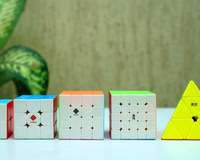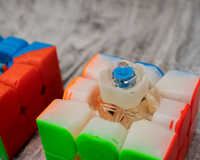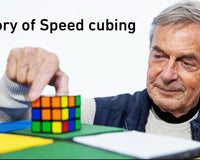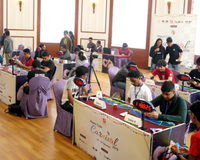Introduction
Among all the bad habits in the world…some of the most common ones which humans share is laziness, procrastination, and ill management of time…and when it comes to speedcubers, it unfortunately happens to be that they are no exception.
Hobbies and time management in daily life
Some people might think that when you get busy you should either get rid of hobbies like speedcubing…or reduce the amount of time you do it. Of course there is truth in the fact that you cannot always be cubing for hours, but keeping a good enjoyable hobby in your daily routine is also quite important
For all extracurriculars, hobbies and even studying…an important thing is knowing where to stop. You have 24 hours in a day…just like every other person, it is not that much of a time to squeeze in the practice of every single event you like to do for hours as well as doing other stuff like homeworks, going to school, playing sports, etc.
Managing cubing during daily life is not something that only beginners level cubers struggle with, but in my opinion speedcubers of all speeds and all amounts of experiences struggle with this.

What can cause ill management of time and what can be it's consequences:
One of the reasons for not wanting to get off your table and stop practicing is that cubing has no proper end. If I want to get a 9 seconds solve, and I work hard for it and finally get a 9 seconds solve, then am I satisfied with it? Yes, but only for a few minutes, and then I am probably going to start working hard again to get an 8 seconds solve. At the same time, its not at all easy to work hard for multiple events every single day and expect yourself to manage your studies, work, other extra-curricular activities, etc…and also get good amount of sleep and keep yourself completely mentally fresh after sitting in front of your computer for a few hours of solving puzzles over and over again.
If you have not yet reached high school or the age when you need to take out time for your studies and work, then it might not seem like a big issue to manage your time in the near future, but not being able to manage time and ending up in a complete mess can cause you to take a lot of stress, and can also affect your mental health…this way, you would not be able to properly improve in cubing also.

How to manage cubing during daily life:
One thing that is supposed to be understood is that practicing consistently is a lot more important than practicing for hours…which is basically quality over quantity.
If you don't have much time in your hands, then you need to control yourself from just solving over and over again and instead focus on learning new algorithms and techniques, doing slow solves, deliberative practice, and then do some solves for about 20 - 30 minutes. What stops you from this is just a mental barrier, because every time you sit down to practice your favorite event, you might just feel like you want to do a lot of solves and expect yourself to improve then and there, but at the end you might realize that you could have had focused on learning new algorithms, or doing slow solves to improve your look ahead, or any other thing than just solving the cube again and again. Obviously, by this I don't mean that practice isn't important…but how you practice in a limited amount of time could just be something more and different than only repeated solving.
Let’s say you have only about 1 hour 20 minutes of free time per day, then you can start off by learning some new algorithms and good f2l tricks for 3x3 for the first 20 minutes and then do slow solves to practice look ahead and finger tricks for another 10-20 minutes and then do some solves for about 40 minutes and then stop your practice for the day. Then the next day you can maybe practice 4x4 and 5x5. You can design the schedule based on which is your main event and how much time you have. If you start seeing the difference in your cubing as well as daily life, you will find this way of practicing better and then get used to it.
Another helpful tip can be to plan out what exactly you want to learn and practice and how much you want to do it a day before itself…this way you won’t have to worry about what you want to do on a day and you can be mentally free.
I have read it somewhere, that people work hard when they know what the goal is and why. So, if you ever wonder why you always intend to utilize your time but still end up procrastinating and wasting your time…it is probably because you yourself aren’t sure of what exactly you want to do with all your priorities. You take a maths book to study, but then you just keep it beside and start scrolling on instagram…because you do not know that even if you open your book, which topic you are going to begin with, what all you want to do that day in maths and how much you are doing it. Obviously, this is just a specific example, but don’t you often wonder, why are you not able to do things even when you want to?
A possible answer is the lack of organization in your daily routine and in your mind. So taking out a piece of paper and writing down a schedule on it can just be a game changer, obviously if you follow it properly.
So try to learn when to do things and when to stop. Make yourself focus on lesser things and keep lesser goals but be adamant towards them, as there is no benefit in wanting to do a lot of things everyday and ending up doing nothing. So while trying to make use of time, just don’t end up becoming the Jack of all and master of none, instead focus on things for which you have a sheer will…and that way you can hopefully see yourself in a better position in studies, work, arts, sports and of course, speedcubing.
- Hasnain Reza Bilal































1 comment
Saral
This is very relatable and most importantly helpful. Thank you